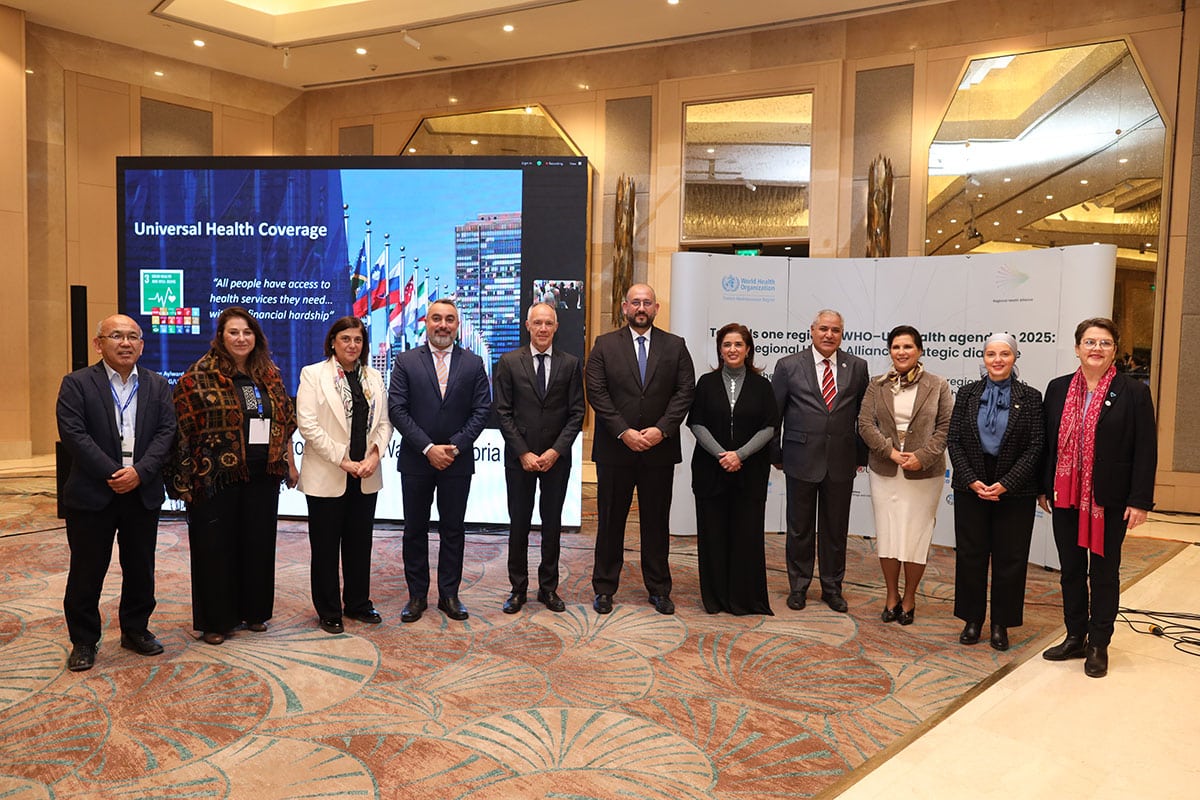Advancing Health Collaboration in the Eastern Mediterranean

On January 15, 2025, Cairo, Egypt, hosted the Regional Health Alliance (RHA) Strategic Dialogue, titled “Towards One Regional WHO-UN Health Agenda in 2025.” This significant event brought together 86 in-person and 11 virtual attendees, including key representatives from 18 participating UN agencies. The gathering featured technical focal points and regional directors from various organizations, emphasizing the importance of collaboration in addressing health challenges in the Eastern Mediterranean region.
The meeting included high-level officials from the World Health Organization (WHO), including assistant directors general from WHO headquarters and regional advisors. Their insights were crucial in shaping the outcomes of the dialogue. The attendees endorsed a new RHA structure and a Joint Action Plan (JAP) for 2025, alongside the introduction of three regional flagship initiatives aimed at enhancing health outcomes across the region.
Reshaping RHA for Greater Impact
The newly established RHA structure focuses on several key areas to improve health services. These areas include primary health care for universal health coverage, addressing health determinants and risk factors, enhancing community engagement, and strengthening health emergency preparedness and response. Additionally, the structure emphasizes the importance of research, innovation, and evidence-informed policy-making.
Dr. Adham Ismail, the Director of Programme Management at the Regional Office for the Eastern Mediterranean, highlighted the significance of coordinated action. He stated, “Planning is just the first step. Success depends on coordinated, evidence-driven and sustained action with engagement from all stakeholders.” His remarks underscored the need for collaboration among various partners to align efforts and prioritize the needs of the communities they serve. By focusing on these critical areas, the RHA aims to create a more effective health system that can respond to the diverse needs of the population.
Working Together: Strengthening Partnerships
Collaboration was a central theme of the dialogue, with participants emphasizing the need to work together to maximize resources and avoid duplication of efforts. The commitment to coordinate within thematic groups reflects a shared understanding of the complexities of health challenges in the region. By fostering partnerships, the RHA aims to enhance the effectiveness of health interventions and ensure that resources are utilized efficiently.
The dialogue also served as a platform for participants to share best practices and lessons learned from their respective organizations. This exchange of knowledge is vital for building a cohesive approach to health challenges. By working together, the RHA and its partners can leverage their collective expertise to address pressing health issues, such as access to medical products and the development of a resilient health workforce. The emphasis on collaboration is expected to lead to more impactful health initiatives that benefit communities across the Eastern Mediterranean.
Flagship Initiatives Take Center Stage
During the dialogue, Dr. Bruce Aylward, WHO Assistant Director-General for Universal Health Coverage, introduced three regional flagship initiatives. These initiatives focus on expanding equitable access to medical products, investing in a sustainable health workforce, and accelerating public health action on substance use. Dr. Aylward emphasized that these initiatives would unite the efforts of UN agencies to tackle complex challenges, including workforce shortages, financing issues, migration, and education.
The flagship initiatives are designed to create a collective and strategic response to drive progress in the region. By addressing these critical areas, the RHA aims to ensure that health services are accessible and equitable for all individuals. The commitment to these initiatives reflects a proactive approach to improving health outcomes and addressing the multifaceted challenges that hinder progress.
Joint Action Plan (JAP) 2025: A Roadmap for Success
The Joint Action Plan (JAP) 2025 outlines clear, time-bound deliverables that align with the shared priorities of RHA member agencies. This plan is crucial for ensuring that efforts are in line with the Sustainable Development Goals (SDGs), with a focus on equity, gender responsiveness, and human rights. Dr. Yukiko Nakatani, WHO Assistant Director-General for Access to Medicines and Health Products, emphasized the importance of interagency collaboration in overcoming the challenges that impede equitable access to medicines and health technologies.
The JAP 2025 aims to support countries in developing policies and improving governance to promote equitable access to essential health services. By addressing intellectual property barriers and fostering collaboration among agencies, the plan seeks to create a more inclusive health system. As the meeting concluded, the message was clear: the success of JAP 2025 relies on collaboration, commitment, and a shared vision for health equity.
Observer Voice is the one stop site for National, International news, Sports, Editor’s Choice, Art/culture contents, Quotes and much more. We also cover historical contents. Historical contents includes World History, Indian History, and what happened today. The website also covers Entertainment across the India and World.

